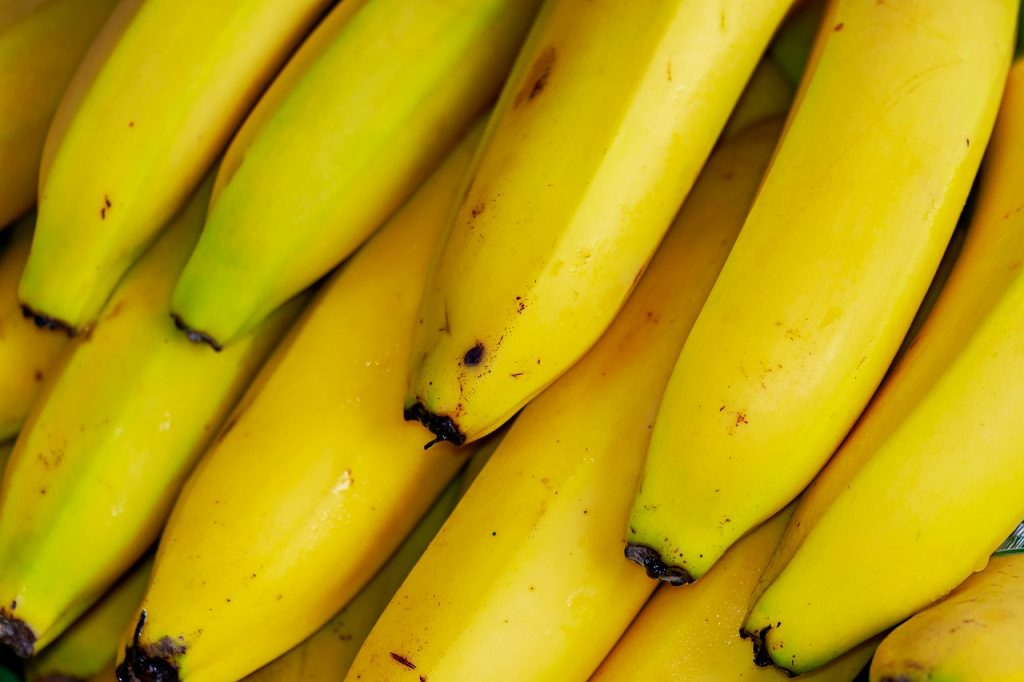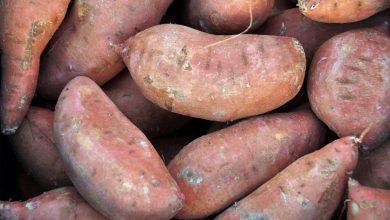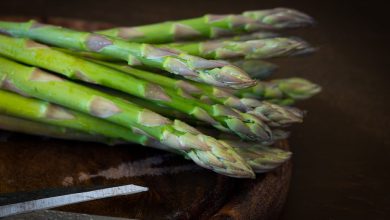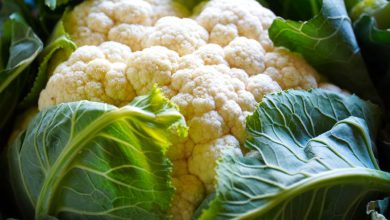Can Bearded Dragons Eat Banana?

As omnivores, bearded dragons are able to eat a huge range of different fruits and vegetables. But can you include banana in the list of “safe foods” for your beardie?
Let’s start with the easy answer: bearded dragons can eat banana perfectly safely.
Bananas often make a welcome treat for your bearded dragon, though should really only be fed in moderation as they contain high levels of sugar.
The best way to feed banana to your bearded dragon is to take a small section of the banana, peel it, then finely chop or crush the banana flesh. It can then be mixed in with the other plant material you’re giving to your bearded dragon.
By feeding banana to your bearded dragon in this manner you’ll avoid the risk of your pet choking on larger pieces of banana.
You’ll also make it more difficult for your beardie to “selectively feed” – picking out only the sweetest and tastiest morsels offered, while ignoring ingredients which might not be as exciting but are far healthier.
Can Bearded Dragons Eat Banana Everyday?
Bananas are a popular food with bearded dragons, however they do have some weaknesses.
Bananas are high in sugar, which can lead to your bearded dragon becoming overweight if they’re fed too regularly.
Equally importantly, bananas contain very little calcium, and have a poor calcium:phosphorus ratio. Feeding bananas too often therefore comes with some risk.
Bearded dragons should not eat banana everyday. Instead, they should be considered an occasional treat.
In place of banana, you should substitute a wide variety of reptile-safe vegetables as the basis of their diet, with sugar-rich fruit making up only a tiny proportion.
How Often to Feed Banana To a Bearded Dragon
Bearded dragons can be fed banana once or twice a week, though they should only be given a small amount each time.
Variety is essential when feeding your bearded dragon. Your pet should be offered a wide range of foods each week. In this way you will minimize the risk of vitamin or mineral deficiencies, which can cause health problems.
As a particularly sugary food bananas should only be given to bearded dragons in moderation, rather than a regular daily part of their diet.
Can Bearded Dragons Eat Banana Peels?
It can be quite a shock to find out that bearded dragons love banana peels.
Of course, this can actually be quite handy as most of us simply throw away our unwanted banana peels. This can help to save money on feeding your beardie!
The one risk factor when feeding banana peel to your bearded dragon is that they aren’t easy to bite through. They’re also quite fibrous, so there is a risk they could cause blockages in the digestive system of your bearded dragon.
If you do decide to offer banana peel to your bearded dragon the best idea is to finely chop the peel into small “bite-sized” chunks. This will make it easy for your bearded dragon to swallow it, and reduce the chances of it getting stuck in the gut.
Nutrients Found in Banana
Bananas are a great food in so many ways. After all, you’ve probably seen professional athletes tucking into them between games so they can’t be all bad, can they?
One major topic discussed by reptile keepers is that of “oxalates”. Oxalic acid is a compound produced by plants that can cause problems with calcium if consumed in high doses. It may prevent your bearded dragon from properly absorbing calcium from their diet, and can cause kidney stones. Fortunately, banana is considered to have a “very low” level of oxalates.
Bananas are high in fiber, which can support a healthy digestive tract. They’re also high in vitamin B6 and vitamin C. They contain a relatively large amount of manganese and potassium which both offer benefits for a strong skeleton.
They’re also low in many things that are best avoided. For example bananas contain very little sodium. This is positive as too much sodium can affect water balance within the body, can lead to dehydration and may also affect blood pressure.
Lastly, bananas are low in fat. While this is in itself a good thing, as mentioned earlier they are also quite high in sugar, so this benefit may be canceled out if your bearded dragon is reasonably inactive.
Reasons Not to Feed Banana to Your Beardie
While the news on feeding bananas to bearded dragons is quite positive, there are a few issues that you should be aware of. It is these factors that mean bananas probably shouldn’t be fed to your bearded dragon daily, but instead should be considered a rare treat for your pet.
High Sugar Content – The reason why tennis players munch on bananas between games is because they’re packed with sugar. This offers “instant energy” that keeps the athlete firing on all cylinders.
However this same sweetness can be a problem for more sedentary creatures, such as bearded dragons. Too much banana can lead to your beardie putting on weight, which can result in a range of unfortunate health problems.
Low Calcium:Phosphorus Ratio – Bananas have a calcium:phosphorus ratio of around 0.3:1. It is important to appreciate this ratio may vary somewhat depending on where the bananas have been grown. However the fact remains that if the ideal ratio is 2:1 then the 0.3:1 offered by bananas is really quite poor.
There are two solutions to the issues mentioned above. Firstly, try to only feed your bearded dragon banana infrequently, and in small amounts each time. This should limit the sugar intake – assuming you don’t simply replace the banana with another equally-sugary fruit.
Secondly, consider purchasing a calcium supplement for your bearded dragon. These are normally very cheap to buy and easy to use. You can use this supplement when feeding your beardie to ensure they’re getting a suitable amount of calcium even when eating a banana.
Sale

Fluker’s Calcium Powder for Reptiles – Premium Reptile Calcium Powder with Added Vitamin D3, for Strong Healthy Bones and Vital Functions – Ideal for Lizards, Snakes, Turtles, Frogs – Made in USA – 4oz
- Premium Calcium Powder: Top-tier bearded dragon calcium powder, specially formulated for lizards, snakes, turtles and frogs. It ensures strong, healthy bones and vital bodily functions.
- Essential Reptile Accessories: Part of the essential reptile accessories needed for the optimal health of your reptile. It offers a proper balance of essential nutrients at any stage of life.
- Repti Calcium with added D3: Fluker’s is not just repti calcium, but a calcium supplement for reptiles with added Vitamin D3, perfect for indoor reptiles such as leopard gecko calcium requirements.
How to Feed Bananas to Your Bearded Dragon
Feeding banana to your bearded dragon is simple enough.
While bearded dragons can eat banana peel, most keepers choose to remove this as it is more fibrous and less digitable than the fruit itself.
Most foods are best chopped into small chunks before feeding them to your bearded dragon but this isn’t necessary for bananas, as when ripe they are incredibly soft. They are therefore less likely to represent a choking threat for your beardie.
Either slice the banana into thin slices, or mash it using a fork. If you decide to mash the banana, some keepers also like to add a small amount of water to create a fine banana “puree”.
As always, try to feed your beardie a wide variety of foods, so consider combining the banana with other foods to ensure a wide variety of vitamins and minerals are consumed at each meal.
As bananas quickly turns in the warm environment of a bearded dragon vivarium it also makes sense to use a shallow food bowl to save getting mess on the cage floor. Lastly, be ready to remove the banana a short while after feeding to prevent any bacterial build-up which can lead to health problems for your bearded dragon.



